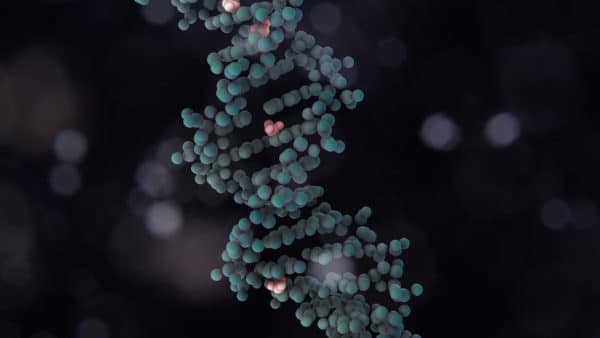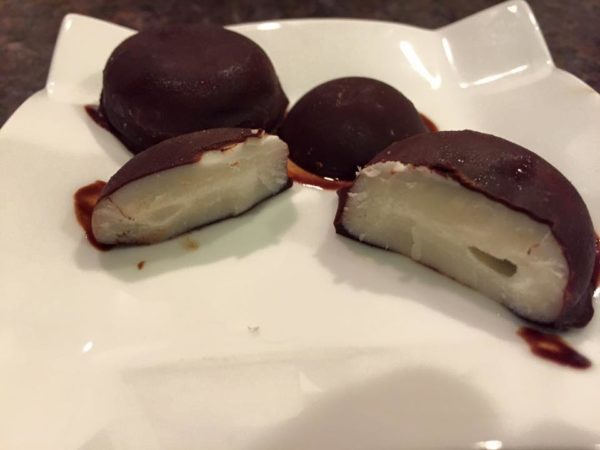
 Greens from the sea are among the most nutritious foods on the planet. They provide the iodine that’s necessary for proper thyroid function, zinc for adrenals suffering from exhaustion, calcium and magnesium for osteoporosis, protein, essential fatty acids for your immune system and iron for anemia prevention. As if that’s not enough, they provide trace minerals and can pull heavy metals and toxins out of your body.
Greens from the sea are among the most nutritious foods on the planet. They provide the iodine that’s necessary for proper thyroid function, zinc for adrenals suffering from exhaustion, calcium and magnesium for osteoporosis, protein, essential fatty acids for your immune system and iron for anemia prevention. As if that’s not enough, they provide trace minerals and can pull heavy metals and toxins out of your body.
So why don’t you eat them on a regular basis?
1- You just don’t know how powerful sea vegetables are
2- You have no idea how to prepare them in delicious ways
3- Slimy green stuff from the ocean is not your idea of a meal
Sea Vegetables are just not appreciated in our Western World. If you frequent Japanese restaurants, sushi and seaweed salad may be familiar menu items, but, unless you’ve been following a macrobiotic or raw foods diet, it’s unlikely that you serve these foods with any regularity at home.
Sea vegetables are easy to prepare and serve and can add fun and diversity to your daily culinary repertoire. With a bit of creativity and experimentation, wonderfully delicious dishes can be prepared from them!
Food manufacturers often use processed sea vegetables as thickeners or stabilizers in a variety of common products, from instant pudding to toothpaste. As “hidden” ingredients, sea vegetables are not be of significant nutritional value. Served as part of main meals and in salads, soups and wraps, sea vegetables offer an abundance of otherwise hard to get nutrients.
Sea vegetables are very rich in nutrients and phytochemicals. They’re loaded with chlorophyll, fiber, and minerals, including significant amounts of sodium, potassium, calcium, phosphorus, magnesium, iron and many other trace minerals naturally found in the ocean. When reconstituted, sea vegetables expand three to seven times their original volume, so small amounts go a long way.
Available in dried form year-round, most sea vegetables are re-hydrated before adding to dishes. Some, like kelp, dulse, nori and sea palm are delicate enough to eat dry. Others, like arame, wakame and hijiki become more tender and appealing when they’re soaked in water to soften. Irish moss can be soaked and used as a thickener in puddings, pies and gravies. Still others like Kombu are usually not eaten by themselves, because they are tougher, but are either ground and used as a seasoning or used whole as a flavoring in soups and stews.
To make a basic sea vegetable salad, simply soak the sea vegetables in water to soften. Drain, reserving the soak water for future use. I usually do equal amounts of sea and land vegetation, like carrots or cucumbers. Kale, collard greens and cabbage make great additions as well. Combine the sea vegetable with the land vegetable and pour a sauce or marinade over them. Let it stand at least 15 minutes to absorb flavor. One of my favorite marinades contains ginger, garlic, sesame oil, lime juice, cayenne and salt. In cooking, dried sea vegetables can be added directly to soups or stews and to the cooking liquid of beans or rice.
For details about how to learn to make the most delicious creations form greens from both the land and sea, sign up for Get Your Green On You can attend the class in person and get to experience the incredible tastes or attend the web class. Either way, you’ll get a recipe booklet, access to the digital recordings after the class and a follow-up live teleseminar with Dr. Ritamarie and Chef Alicia.
Get GREEN for Vibrant Health
Love, Health and Joy,
Dr. Ritamarie
www.DrRitamarie.com
Share this:

Are you feeling stuck?
Do you feel as if something is missing from your practice that's keeping you from delivering breakthrough outcomes for your clients?.
Recent Posts
Our Programs
Nutritional Endocrinology Practitioner Training (NEPT)
The Mastery and Certification tier is our flagship program and provides everything you need to feel confident as a practitioner who knows how to get results that lead to healthy and happy clients.
Functional Assessment Mastery
Explore the relationships between the most important hormones and their relationship with nutrition.
Functional Nutrition Mastery
Learn how to support your clients to eat and supplement in a way that reduces and eliminates chronic symptoms.
Medical Disclaimer: The information on this website is not intended to replace a one-on-one relationship with a qualified health care professional and is not intended as medical advice. It is intended as a sharing of knowledge and information from the research and experience of Dr. Ritamarie Loscalzo, drritamarie.com, and the experts who have contributed. We encourage you to make your own health care decisions based upon your research and in partnership with a qualified health care professional.
Disclosure: Sometimes (but not always), when I share resources in my programs, newsletter, and on my website, I'm using an affiliate link, which means I do make money if you buy. My credibility is extremely important to me; therefore, I only endorse the products, services, and people I believe in. DrRitamarie.com is independently owned and the opinions expressed here are my own.
Click here to see our Privacy Policy.










Dear Dr.Ritamarie;
Let me introduce myself. My name is Boris Levitsky, I am the Executive Director of the Nutritional Magnesium Association (NMA) at http://www.nutritionalmagnesium.org. and Carolyn Dean, M.D., N.D. author of “The Magnesium Miracle” (Ballentine, 2007) is our Medical Director.
I have recently read your article “Sea Vegetables: Energy Boosters for Chronic Fatigue and Thyroid” and appreciated this information very much.
I would like to ask your permission to post excerpts of your article on our web site. Is this possible?
The NMA’s stated mission is: The dissemination of timely and useful information on the subject of nutritional magnesium to improve the lives of people affected by the widespread deficiency of this mineral in our diets and the related health issues associated with this deficiency.
With this in mind would you be interested in collaborating with the association in any way that could promote your research and expertise in the field as related to nutritional magnesium and associated health issues?
For example: Could you offer expert commentary, quotations, interviews, etc., for articles that the NMA generates for publication in newspapers and trade/general magazines and journals?
Can you share anecdotal case studies on the benefits of magnesium in helping people with various health issues that could be posted on the NMA web site?
Would you be interested in the NMA helping you create and/or market any informative articles, reports, e-books, studies, etc., on your area of expertise as related to magnesium to general and trade publications as appropriate?
Would you be interested in the NMA organizing paid talks and seminars on your area of expertise in either your local area or outside your area to colleges and universities as well as associations and corporate venues?
We plan on providing a print and/or electronic newsletter on the latest research studies and information on magnesium free of charge to doctors and related professionals – if you care to contribute magnesium related information to this newsletter we would be happy to publish and distribute it.
Please let me know if you would like to share any other ideas on how we can collaborate.
Thank you for your consideration.
Sincerely,
Boris Levitsky
Executive Director
NMA
(714) 605-1100
[…] recipe for a salad dressing is a quick and easy way to add sea vegetable nutrition to your […]